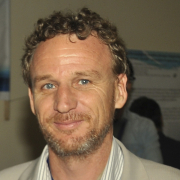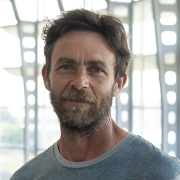Copyright : Laboratoire LEMAR- 2018
Eric FEUNTEUN / Patrice BREHMER
International
ARED et Europe
Start Date
05/04/2025
End Date
05/04/2025
This work aims to develop a method for assessing coastal pelagic fish communities that is innovative, universal and therefore applicable to different biogeographic regions in Europe and beyond. The method will be developed in the field in Brittany using equipment (e.g. hydroacoustic, trawl) sized for coastal and ultra-coastal areas (0-40 m). These methods will be tested in 3 pilot sites along the Breton coast thanks to the mobilisation of the coastal scientific fleet of the UBO, Roscoff (Sorbonne University) and the Dinard marine station (MNHN). Finally, through international cooperation, a large database from a European project will be used to validate indicators of the state of pelagic biocenoses.
This work will be structured in three parts: (i) the establishment of relevant ecosystem descriptors to assess the ecological status and monitor the evolution of these ecosystems; (ii) their application at the regional level within the framework of the European FEAMP (European Maritime Affairs and Fisheries Fund) project named ACaPELA for "Hydroacoustic Monitoring Methodology for Coastal Fish and Cephalopods" and the European directive DCSMM (Framework Directive on Marine Strategy; Directive 2008/56/EC, 2008); (iii) the validation of these ecosystem descriptors on a larger scale using the dataset of the PREFACE project (Enhancing Prediction of Tropical Atlantic Climate and its Impacts; European Commission FP7).
The first part of the PhD work will focus on the development of relevant descriptors for the assessment, understanding and monitoring of marine and more broadly aquatic ecosystems, taking into account their links with the environment and the various anthropogenic pressures. The descriptors will be particularly focused on small pelagic fish and the diffusing layers (Béhagle, 2015; Diogoul et al., 2020, 2019). Coastal pelagic fish are a poorly known but important ecosystem component, especially for Brittany which has 1565 km of coastline and a large associated economic activity. Small pelagics play a major ecological role in the structuring of ecosystems (van der Oost et al., 2003) as they are essential for higher trophic levels (e.g. birds, mammals). The diffusing layers (plankton) are also essential by integrating the lower or even intermediate trophic level.
The second part will apply these descriptors to the ACaPELA project which, in the framework of the DCSMM, "aims to achieve and/or maintain good ecological status of the various marine ecosystems". The aim of this project is to complement current fisheries surveys with a protocol and equipment adapted to work at shallow depths with acoustic data supplemented by fishing, diving and optical data. The ecosystem descriptors developed in the first part will allow an analysis and monitoring of the state of the ecosystems, according to environmental and pressure gradients, although the link with the environment will be mainly studied in the last part.
The last part of the thesis will apply these descriptors to the Atlantic Ocean dataset, an area that has experienced persistent climate change over the last century (Demarcq et al., 2018). African countries bordering the Atlantic are highly dependent on the ocean for societal development, fisheries and tourism (Lancker et al., 2019). The three major marine ecosystems of West Africa are considered with data recorded over 15 years. The descriptors will be effective in observing these ecosystems and understanding their evolution in relation to the environment (climate change, overfishing, pollution) and allow for the implementation of sustainable monitoring and activities.
Laboratory Members
Contributors
- UMS PatriNat (OFB, MNHN, CNRS).
- Station de biologie marine de Dinard (CRESCO : Centre de Recherche et d’Enseignement sur les Systèmes Côtiers).
- UMR Borea (MNHN, CNRS, UPMC, IRD, Université de Caen, UA).
- CSRP (Commission Sous-Régionale des Pêches) : Collaboration pour favoriser la coordination et la communication entre les différents instituts, de par son statut d’organisation intergouvernementale de coopération halieutique.
- IMR (Institute of Marine Research), Norvège : collaboration concernant la récupération des données acoustiques et des métadonnées associées des différentes campagnes. Cet institut était en charge de la coordination des campagnes.
- ISRA-CRODT (Institut Sénégalais de Recherche Agricole – Centre de Recherches Océanographiques de Dakar-Thiaroye), Sénégal : collaboration pour l’expertise nécessaire à l’analyse des données acoustiques dans la zone. Travail important notamment avec le Dr Sarré (encadrement de thèse).
- IMROP (Institut mauritanien de recherche océanographique et des pêches), Mauritanie : Collaboration pour l’analyse et la bonne interprétation des résultats dans les eaux territoriales sous la responsabilité de l’institut et dont ils ont l’expertise et la connaissance.
- FD (Fisheries Department), Gambie : Collaboration pour l’analyse et la bonne interprétation des résultats dans les eaux territoriales sous la responsabilité de l’institut et dont ils ont l’expertise et la connaissance.
- CIPA (Centre d’investigation et d’application de la pêche), Guinée Bissau : Collaboration pour l’analyse et la bonne interprétation des résultats dans les eaux territoriales sous la responsabilité de l’institut et dont ils ont l’expertise et la connaissance.
- INRH (Institut National de la Recherche Halieutique), Maroc : Collaboration pour l’analyse et la bonne interprétation des résultats dans les eaux territoriales sous la responsabilité de l’institut et dont ils ont l’expertise et la connaissance.










